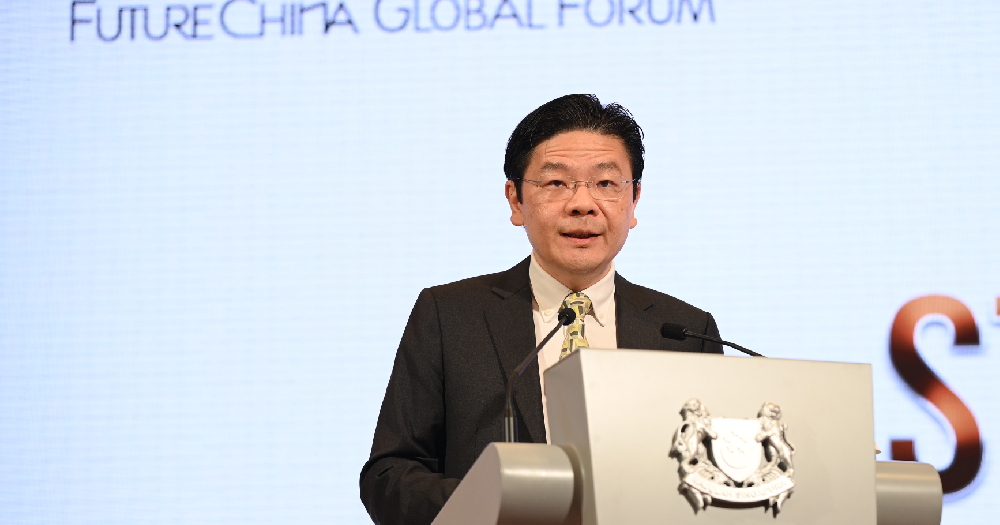Follow us on Telegram for the latest updates: https://t.me/mothershipsg
On Oct. 7, Deputy Prime Minister Lawrence Wong spoke about the transitional period that the region has found itself geopolitically, and what Singapore could do in the face of such challenges.
World is still in transition
Speaking at the FutureChina Global Forum 2023, Wong set the stage by noting the ever increasing and compounding challenges facing the global environment.
Noting that the world is still facing the Covid-19 pandemic, Wong said that there is still the possibility of the virus mutating in the coming months. Added to this challenge was the Russian invasion of Ukraine, and the volatility it added to the global geopolitical space, as well as the impact to global food and energy supply.
"Unfortunately, there are no signs of a diplomatic solution to end the war anytime soon," Wong said.
Now there was the possibility of "the most comprehensive tightening of monetary policy the world has seen in decades", which will "inevitably slow down the global economy and may even lead us to recession".
All this was against the continued backdrop of intensifying geopolitical contestation, with the U.S. and China tensions increasing, but with other powers such as India also growing in strength.
In Wong's view the world was moving from a unipolar to multipolar world, where there would be multiple economic centres in an "evolving configuration".
Singapore has agency
Wong said that Singapore, while limited in its ability to influence the outcome of such global contestation, still has agency. He laid out three points in how Singapore might exercise that agency.
First, Singapore "must always stand firm on fundamental principles of international law". Explaining that this was why Singapore took an unprecedented stand by unilaterally sanctioning Russia, he said that nothing could justify such an egregious breach of international law.
Secondly, Singapore must work with others to strengthen multilateralism and uphold the rules-based order. This is why Singapore actively participates in a range of global forums, such as the United Nations, World Trade Organization, and the G20. In doing so, Singapore is advocating stronger global cooperation.
Third, Singapore would continue to work with Asean member states to "strengthen Asean integration and develop an open and inclusive architecture of cooperation for the region".
Asean is a young growth centre with a larger population than Europe and a combined GDP of over US$3 trillion (S$4.3 trillion). With sound economic fundamentals and a careful harvesting of Asean's demographic dividend, that GDP would stand to double or ever quadruple over the next two decades.
Wong also noted that while Singapore and Asean may not be able to do much to influence the course of U.S.-China relations, what they can do is to keep the region "open and inclusive". This means encouraging all major partners to build stakes in the region, fostering greater economic interdependence and integration.
Asean's interest was not in choosing sides, but "making choices for ourselves, advancing our own collective interest, and doing what's best for our peoples", he added.
China and Singapore's bilateral relations
Wong also spoke about Singapore's participation and support for China's four decades of reform and opening up, the various projects Singapore engaged in, and how Singapore, despite its small size, had managed to become China's largest foreign investor.
This, coupled with China being Singapore's top trading partner, reflected the economic ties and close links between the two countries and its people.
Singapore and China are continuing to build on the strong foundation of their bilateral ties by collaborating in emerging areas of the economy, such as the digital and green economy.
He also said that many Singaporean and Chinese business leaders recognise that strong relationships are based on mutual understanding and trust, which is built on frequently getting together and meeting. Many, himself included, look forward to returning to China before too long to renew these relationships.
Top image via Business China
If you like what you read, follow us on Facebook, Instagram, Twitter and Telegram to get the latest updates.
